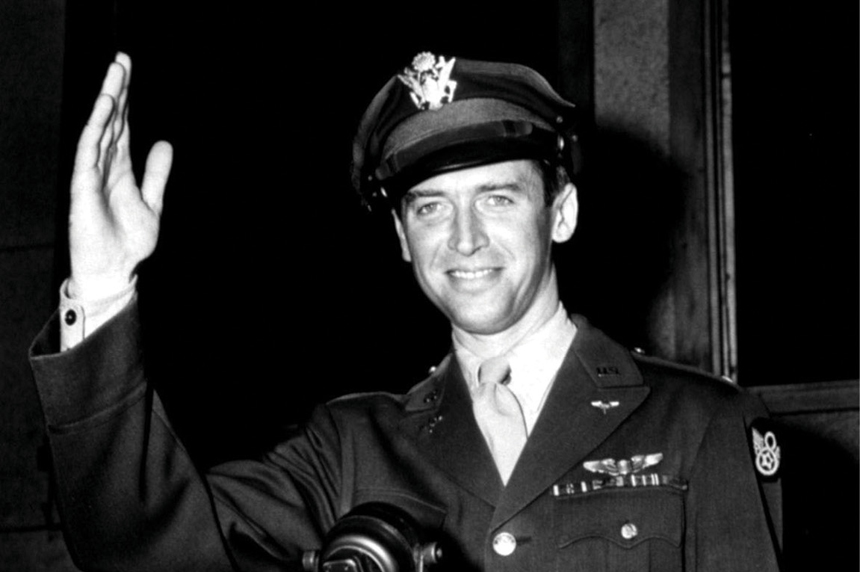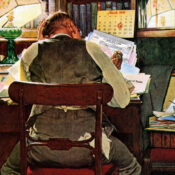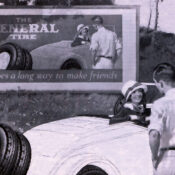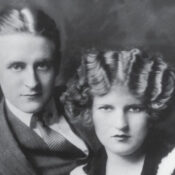—From “Jimmy Stewart’s Finest Performance” by Col. Beirne Lay Jr., from the December 15, 1945, issue
He sat in the half-empty combat mess one night, eating alone, the tension within him mounting painfully. The mess was half-empty because 13 crews had failed to return from the day’s mission to Gotha, Germany, during which [enemy fighter planes] had knocked the hell out of the B-24s in a desperately fought 2½-hour air battle.
Jimmy was scheduled to lead the group to Nuremberg, over the same bloody route, the next day. Equally violent or increased fighter opposition could be expected. He fought off the premonition that his number was up, that this time a guy named James Stewart wouldn’t come back alive.
At 8 p.m. the phone rang. Tibenham Airfield was alerted for the Nuremberg mission. Jimmy laid down his fork, climbed into his jeep, and drove to the blacked-out operations block to begin the all-night task of engraving on his brain every scrap of information in the field order.
Gen. Ted Timberlake was waiting out on the airdrome as the B-24s returning from Nuremberg circled overhead. His face relaxed when he counted the same number that had taken off. Stewart taxied up and climbed wearily out of the bomb bay, eyes haggard and cheeks creased from long hours spent in the grip of an oxygen mask.
“How did you make out at the target?” asked Timberlake.
Jimmy managed a grin. “We clobbered it,” he said.
Two weeks later, General Hodges was discussing the next day’s strike against Brunswick with Timberlake.
“Who’ve you got leading tomorrow?” asked Hodges.
“Stewart,” said Timberlake.
Hodges nodded approval. “I’ve got so I don’t worry much when Stewart’s leading,” he said. “We always have a pretty good day.”
Editor’s note: Stewart refused to play up his wartime heroism. As columnist Pete Martin pointed out in a 1951 article, a clause in Stewart’s movie contract stated, “In all advertising and publicity … the corporation will not mention the part taken by the artist in World War II as an officer in the U.S. Army.”
This article appears in the September/October 2022 issue of The Saturday Evening Post. Subscribe to the magazine for more art, inspiring stories, fiction, humor, and features from our archives.
Become a Saturday Evening Post member and enjoy unlimited access. Subscribe now



